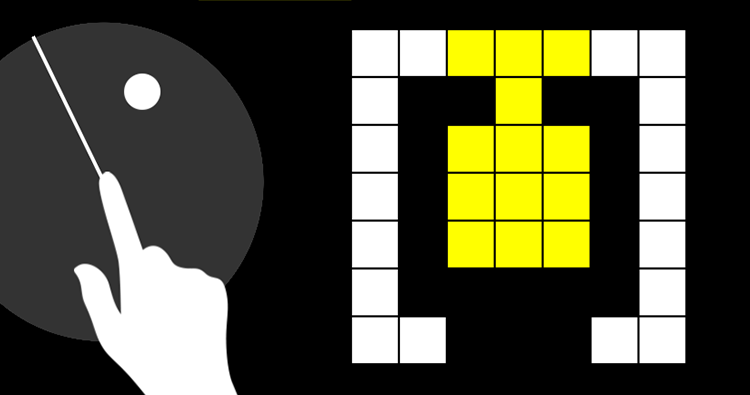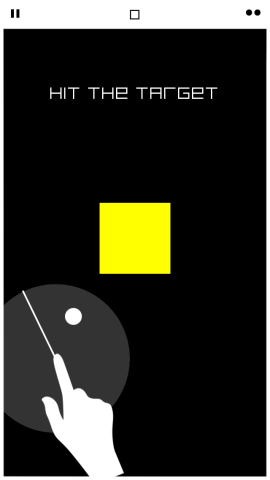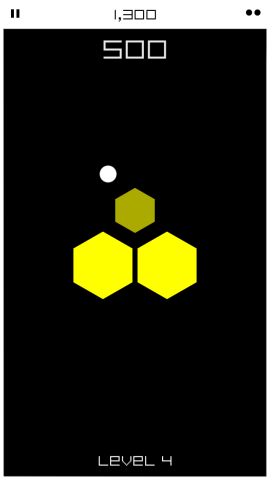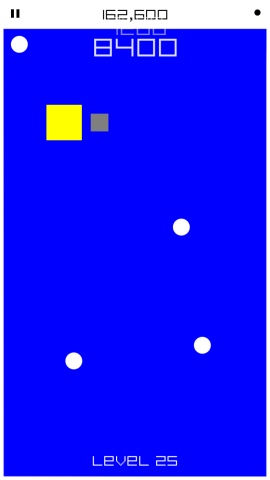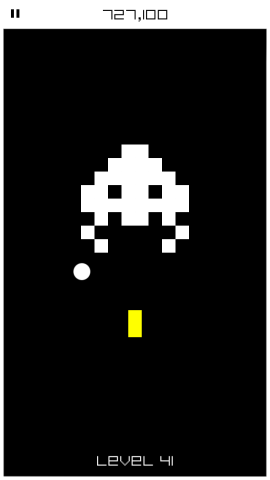This elegant game updates retro classics with smart touch controls
For those who miss the bygone days of gaming infancy when arcade classics like Pong, Asteroids and Arkanoid were yet to be known as ‘classics’, you’re in good company. The team at Refix clearly felt the same way and have combined all of the above, thrown in a clever touch-based interface, and ended up with a fresh twist on familiar themes.
The developers describe their game as a ‘minimalist action puzzle’, which is pretty accurate. The gameplay boils down to bouncing a white ball into a formation of yellow bricks until they have all been destroyed, without letting the ball go offscreen. Simple.
Where it gets interesting is that the ‘paddle’ used to bounce the ball is not a fixed object, but is drawn and redrawn constantly by the player to define each bounce. This game is all about angles and reflexes, and will test your wits as well as your patience.
Polynoid rewards skilful play through a combo system that provides big points for consecutive successful ‘hits’. There are a few powerups to help with this task, changing the speed and size of the ball or giving it temporary new brick-destroying powers. The most exciting of these is the high-octane multi-ball power – unfortunately some of the others are a little disappointing.
The graphics are stark and bold, using only a handful of colors and basic geometric shapes. Polynoid aims for a ‘retro-futuristic’ vibe without resorting to neon lights or particle effects. There’s no excess fat in this game.
The 100 levels are nicely designed, and though basic they are varied enough to stay interesting. The yellow bricks differ in size and shape, with some levels requiring them to be destroyed in a particular order to progress.
Like the visuals, the audio in Polynoid is raw and minimal. There is a gentle ambient backing track which just barely qualifies as music, and a small number of raw-sounding monophonic bleeps to signify collisions. These noises are cute and satisfying but the powerups can feel somewhat lacking without additional musical accompaniment to ramp up excitement.
Each game starts out peacefully but can descend into chaos at the drop of a hat. The levels, though sometimes frustrating, are fairly designed and failure never feels like the fault of the game. In fact, dying unnecessarily – which happens a lot – mainly just provokes that familiar ‘I can do better next time’ feeling.
The free version of Polynoid contains the first 30 levels. The remaining 70 can be unlocked for $1.99 (£1.49), and after a few play sessions this feels like a necessary upgrade. The paid upgrade also provides the ability to ‘continue’ from the same level instead of starting again at every game over. This comes at additional cost, however, with packs of extra lives sold as in-app purchases. The continue function is useless without these extra lives, which also provides a morally cheap but financially costly way straight to the top of the Game Centre high score boards.
Overall Polynoid is a fun homage to arcade gaming, wrapped up in a neat and nostalgic package. Ignoring the hint of ‘pay to win’ about its pricing structure, it succeeds with its retro sensibilities and commitment to cleverly simply mechanics. A must play for anyone who yearns for the classics to be given the proper 21st century treatment.
Price: Free ($1.99 / £1.49 for full version)
Version: 1.0
Size: 9.0 MB
Developer: Refix ApS
